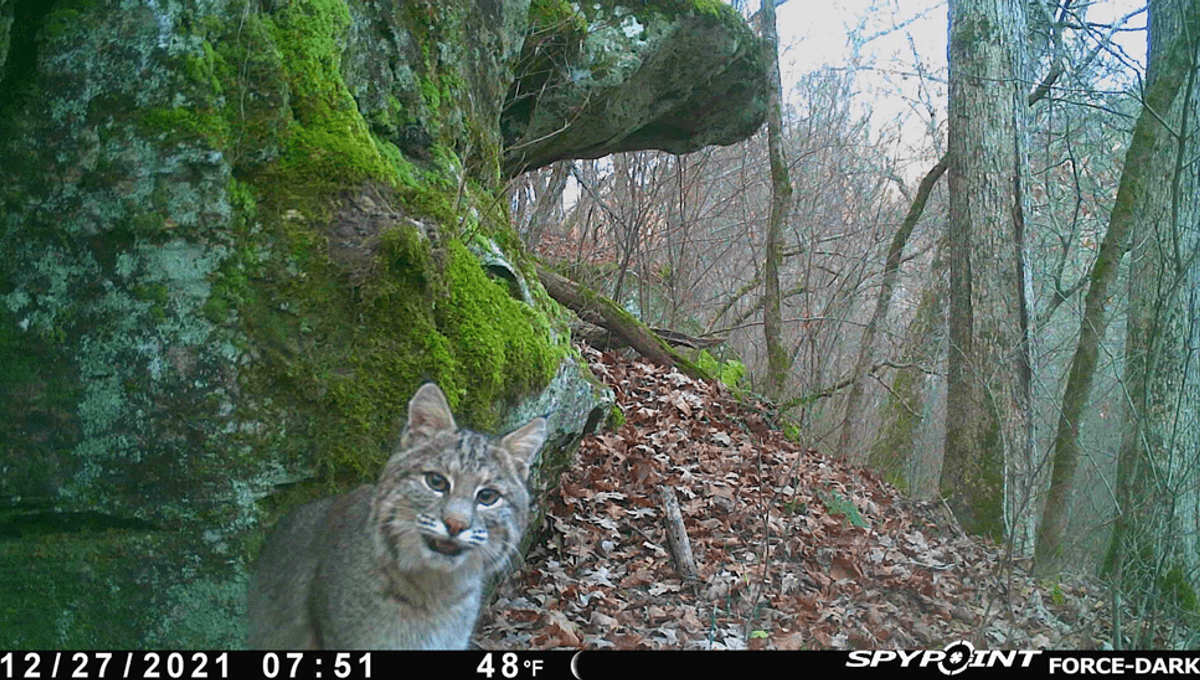-
Новости
- ИССЛЕДОВАТЬ
-
Страницы
-
Статьи пользователей
-
Форумы
A Decapitated Python In Florida Everglades Suggests Bobcats Are Resisting Their Invasion

Burmese Python Vs Bobcat: A Decapitated Snake In Florida Shows An Unlikely Winner
In the Everglades of Florida, a decapitated Burmese python is offering a glimmer of hope for the ecosystem. A victorious bobcat was later spotted snooping around the body of the defeated snake, suggesting that the native wildlife is able to take a stand against the invasive species.
Burmese pythons, as their name suggests, are not native to the wetlands of Florida, but the tropical forests of Southeast Asia. The population was founded in the late 20th century by escapees of the exotic pet trade. Their numbers were given a boost in August 1992 when Hurricane Andrew wrecked a serpent breeding facility near the Everglades, unleashing an unknown number of pythons into the wild. The warm, swampy environment was ideal for the predatory pythons, allowing their populations to boom. But their arrival had a devastating impact on the wider ecosystem. Within just a few decades, small mammal species like marsh rabbits, cottontail rabbits, raccoons, and foxes have almost disappeared from the Everglades. Bobcats, a medium-sized wild cat native to North America, are another favourite meal of the Burmese python and have suffered under the pressure of this invasive species. However, a recent sighting has suggested there may be some resistance against the python’s streamrolling of the ecosystem. In December 2022, biologists from the Conservancy of Southwest Florida were tracking a male snake named Loki that had been fitted with a radio tracker. They followed the signals from the device and managed to find the 4-meter (13-foot) snake in a pile of debris, Fort Myers News-Press reports. Upon further inspection, it was evident that Loki had been mauled and attacked by another animal. A trail camera placed at the site of the attack later captured footage of a bobcat returning to the scene of the crime the following morning. “We started to pull away some of the pine needles, and we realized that the head and neck area had been chewed off and cached – which, to my knowledge, caching is typically a feline behavior in our area, so we were pretty sure it was a cat," Ian Bartoszek, biologist and python expert at Conservancy of Southwest Florida, told Outdoor Life. They aren’t species that are known to take a punch at the invasive snakes. Alligators prey on them, and it's likely that other snake species and possibly even black bears do as well. There’s still a long way to go before the Burmese python problem is fixed, though. The current population is estimated to be between 30,000 and 300,000, but modelling suggests that figure could rise to millions if left unchecked. Nevertheless, these recent developments suggest nature is beginning to push back. “It’s a score for the home team. The Everglades are fighting back,” said Bartoszek.


